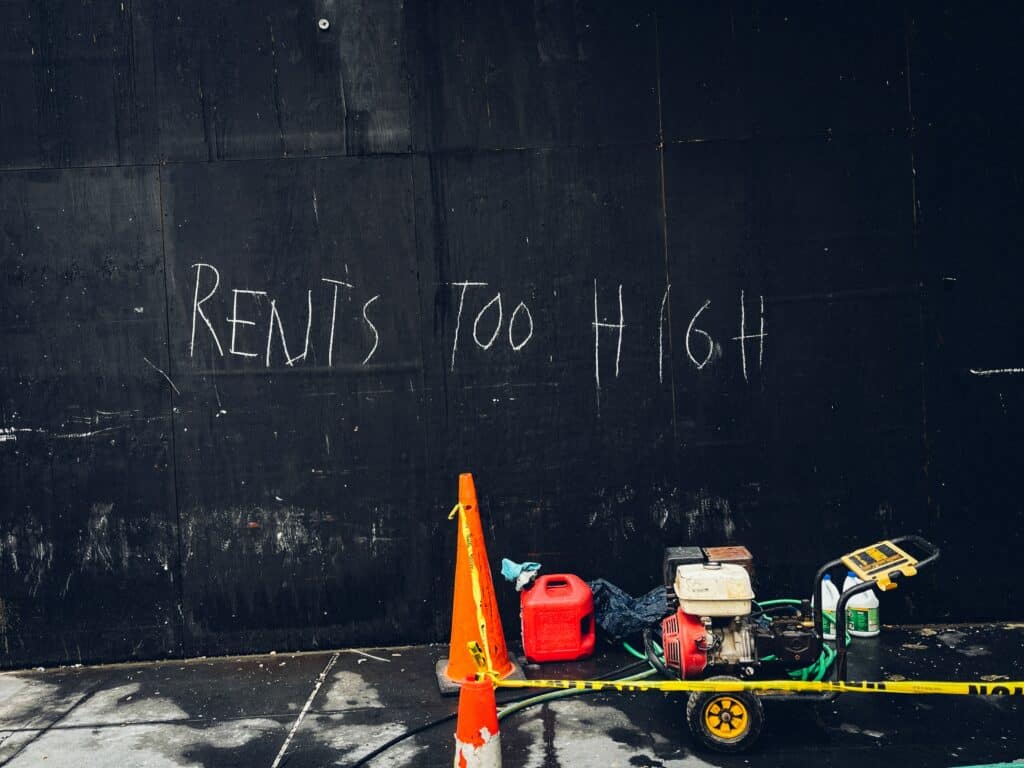Imagine being denied an apartment because of something beyond your control. Now imagine spending hundreds, if not thousands of dollars on apartment applications only to be rejected repeatedly. Your search is complicated due to your current landlord filing eviction proceedings against you in retaliation for your decision to withhold rent after he refused to make critical repairs you had requested for months. Moreover, you are one of the nearly 100 million Americans who have a criminal conviction.
Time is ticking, and you and your family need to find a new apartment.
Many Black and Brown people confront these pressures when searching for apartments because of the criteria landlords often use to decide whether someone will be a “good tenant.” When evaluating tenants, landlords often rely on criminal records, credit scores and eviction records, which can negatively impact Black and Brown applicants. Landlords’ preconceived notions about the personal character of anyone with a past criminal conviction has devastating consequences for Black and Latino prospective renters.
Landlords’ use of criminal records to evaluate tenants can have an overwhelmingly negative impact on Black and Brown people, who are incarcerated respectively at 5 and 1.3 times the rate of White people. Although denying someone housing based on a criminal record isn’t the same as racial discrimination, this overrepresentation by race means the practice still generates discriminatory effects. The reasons for that overrepresentation include racial biases which influence discriminatory policies like New York’s infamous stop and frisk as well as Black people being 4 times more likely to be arrested than White people for drug offenses despite Whites and Blacks selling drugs at the same rate.
Non-White Americans are further set up to fail in several areas that have had a long history of discrimination. Discriminatory credit scoring practices, intentional targeting by predatory mortgage lenders in the runup to the 2008 foreclosure crisis and disproportionately high rates of foreclosure after said crisis devastated many of these homeowners’ credit scores. Black Americans were also excluded from the homeownership benefits of the GI bill after WWII. These and other discriminatory patterns mean that Black and Brown tenants are also far more likely to have been targeted in eviction proceedings — another blunt tool frequently used by landlords to speed up tenant screening and avoid considering people’s individual experiences and character.
Bias in the tenant screening process can cause Black and Latino people to have less access to a critical source of housing. Data reveals that roughly six in 10 Black people are renters. Latinos are faring somewhat better, with half owning their homes and half paying rent instead of building equity.
Limited access to a major source of housing means potential increased rates of homelessness, and many Blacks and Latinos already endure high rates of homelessness relative to their share of the American population. Two in five homeless people identified in a 2019 federal survey of the issue are Black, triple that group’s share of the US population. Another fifth of homeless people the survey captured are Latino, very slightly above the share of the Latino population in the country writ large. The statistics are even more alarming for families. A stunning 52% of homeless families with children are Black.
Unchecked bias in tenant screening can only worsen these already dire rates of homelessness for people of color.
Homelessness is not the only inequity that Black and Latino people endure in housing. The disparities in the criteria landlords use to assess prospective tenants—the criminal justice system, eviction proceedings and lower credit scores—make it more difficult for them to rent apartments. That’s why NCRC authored a comment letter to the Federal Trade Commission (FTC) and Consumer Financial Protection Bureau (CFPB) on May 30th about this subject.
What can the FTC and CFPB do to combat discrimination in the tenant screening process?
Both agencies already have statutory authorization to take effective action. The FTC should apply its authority to police unfair or deceptive acts or practices in the rental housing market, thereby curbing the prejudicial screening practices described above. The CFPB meanwhile can exercise existing powers to curb the misuse of credit reports by landlords – including by cracking down on egregious errors like misidentification of individuals in the system.
The coalition comment letter to the agencies also notes two areas where the housing rights of vulnerable renters can be better protected: Fair Housing Act violations and the use of algorithmic audits that probe for bias.
An algorithmic audit would assess a tenant screening service’s methods for protecting all consumers from unfair deceptive acts and practices, and for preventing discrimination against protected classes. The FTC and CFPB should provide oversight and guidance on how to assess disparate impacts from algorithmic tenant screening services and clarify when providers should find less discriminatory alternatives (LDAs).
We also urge both agencies to formally coordinate with the Department of Justice and the US Department of Housing and Urban Development to advance fair housing enforcement in criminal records, eviction records and other criteria that can have discriminatory outcomes. These agencies should consider entering a Memorandum of Understanding to coordinate enforcement responsibilities and to maximize enforcement impact.
Between the historical economic disenfranchisement of Black and Brown families writ large, and the twinned modern injustices of disparate treatment in the criminal and housing courts, the obstacles to tenancy for non-White Americans are more complex than any one policy action could resolve.
That is why this problem requires multi-fold action by both the FTC and the CFPB: There is no silver bullet, but there are concrete, common-sense moves these agencies can and should make immediately.
Nichole Nelson is a Senior Policy Advisor at NCRC.



